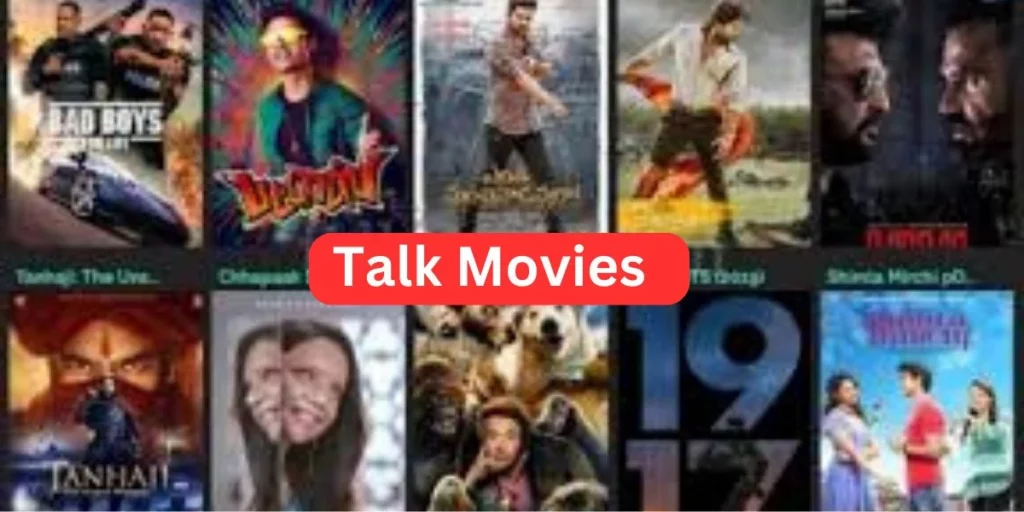In the vast expanse of cinematic genres, talk movies stand as a distinctive and enthralling category that accentuates the potency of dialogue in storytelling. These films, characterized by their emphasis on conversation, offer a departure from the norm of action-driven blockbusters or visually centric narratives. This exploration aims to delve into the realm of talk movies, analyzing their significance, evolution, and the profound impact they’ve exerted on filmmakers and audiences alike.
Understanding Talk Movies: A Cinematic Conversation
Talk movies, also termed dialogue-driven films, place paramount importance on verbal exchanges between characters to propel the narrative. Unlike conventional films where visuals take precedence, talk movies rely extensively on the art of conversation, showcasing the efficacy of well-crafted dialogue and compelling storytelling. This genre spans diverse themes, ranging from intimate character studies to intense philosophical discussions, offering a rich array of viewing experiences.
Evolution of Talk Movies Through Cinematic History
The roots of talk movies trace back to the early days of cinema, where technological limitations necessitated a reliance on dialogue to convey narratives. However, it was during Hollywood’s “Golden Age” that talkies, films with synchronized dialogue, gained prevalence. Pioneering directors like Alfred Hitchcock and Billy Wilder embraced dialogue as a pivotal storytelling element, laying the groundwork for the talk movie genre.
Impact on Filmmaking Techniques
Talk movies have significantly influenced filmmaking, compelling directors to prioritize scriptwriting and character development. With reduced emphasis on visual spectacle, filmmakers are challenged to craft engaging narratives dependent on dialogue and character chemistry. This emphasis has provided actors a platform to showcase their prowess in delivering compelling and memorable performances.
Notable Talk Movies That Redefined the Genre
- “12 Angry Men” (1957): Sidney Lumet’s courtroom drama is a dialogue-driven masterpiece set almost entirely within a jury room.
- “Before Sunrise” (1995): Richard Linklater’s romantic gem follows strangers engaging in profound conversations while wandering through Vienna.
- “My Dinner with Andre” (1981): Louis Malle’s film unfolds as a dinner conversation, exploring existential questions and human experience.
- “The Social Network” (2010): David Fincher’s exploration of Facebook’s founding is propelled by Aaron Sorkin’s sharp, fast-paced dialogue.
The Allure for Audiences: A Different Cinematic Experience
Talk movies offer audiences a unique and immersive experience, inviting active participation in the narrative. Focusing on dialogue creates intimacy, enabling viewers to deeply connect with characters and their stories. These films often challenge intellectual boundaries, presenting thought-provoking conversations that resonate beyond the screen.
Challenges and Rewards for Filmmakers

Creating compelling talk movies poses challenges, including crafting engaging dialogue and maintaining pacing without visual extravagance. However, successful talk movies transcend traditional storytelling, enabling filmmakers to showcase their skills in dialogue and character-driven narratives.
The Future of Talk Movies: A Continued Conversation
Amidst evolving cinematic landscapes, talk movies remain influential. Filmmakers and audiences appreciate the potency of well-written conversation, reaffirming that amidst visual spectacle, the spoken word remains a potent force in storytelling.
In conclusion, talk movies occupy a distinct niche in cinema, proving that conversation can be as visually compelling as any action sequence. As filmmakers push dialogue-driven narratives, the impact and allure of talk movies are likely to persist, offering a cinematic experience engaging both mind and heart.
FAQs
What defines talk movies?
Talk movies prioritize dialogue-driven storytelling, emphasizing verbal exchanges between characters to propel the narrative without relying heavily on visual spectacle.
How have talk movies influenced filmmaking?
They’ve shifted focus onto scriptwriting, character development, and actor performances, challenging filmmakers to create engaging narratives reliant on dialogue.
Why do audiences find talk movies appealing?
They offer a unique, intimate experience, allowing viewers to deeply connect with characters and thought-provoking conversations that linger beyond the screen.
Also read: Unblocked Games 76


